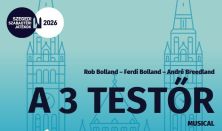Though as we well know, these journeys into the future/past, guided by the true artist, will explore the present and raise extremely topical questions.
Satyricon is an abundance of spectacle. Fellini follows in the footsteps of Bosch and Bruegel. In other words, don't come here looking for a safe haven. It is brutal. We warn spectators of a delicate disposition: here, ancient Rome is a psychedelic smorgasbord of brutality, perversion and bloody pagan rites. In this case, we cannot even speak of moral emptiness, since all-pervading immorality is the basic medium of this world. Everything and everyone is for sale, the property of superstition, perfidy and unconstrained power... Terrifying. As though you are stepping into the illustrations of Richard von Krafft-Ebing's work Psychopathia Sexualis. Would Fellini be the Petronius of his era? You could certainly argue the case, given the importance of the socially critical thread running through Fellini's work. And within that, the relationship to the past is also emphasised. The way power always repaints the past in order to use it for its own ends. In Fellini's films, this idea is usually contrasted with personal memories, which are inaccurate, sometimes dreamlike, but human. Satyricon's statues, frescoes and graffiti are those fragments that remain with us and in our possession as we attempt to reconstruct the past. But is the past worth hanging on to? In his next film, Fellini - Roma (1972), the director attempts to answer that unanswerable question.
In Italian, with Hungarian subtitles.
The discussions before and after the screening are conducted in Hungarian.
Presented by: Müpa Budapest





